Daqi Zheng
Neural Entity Reasoner for Global Consistency in NER
Sep 30, 2018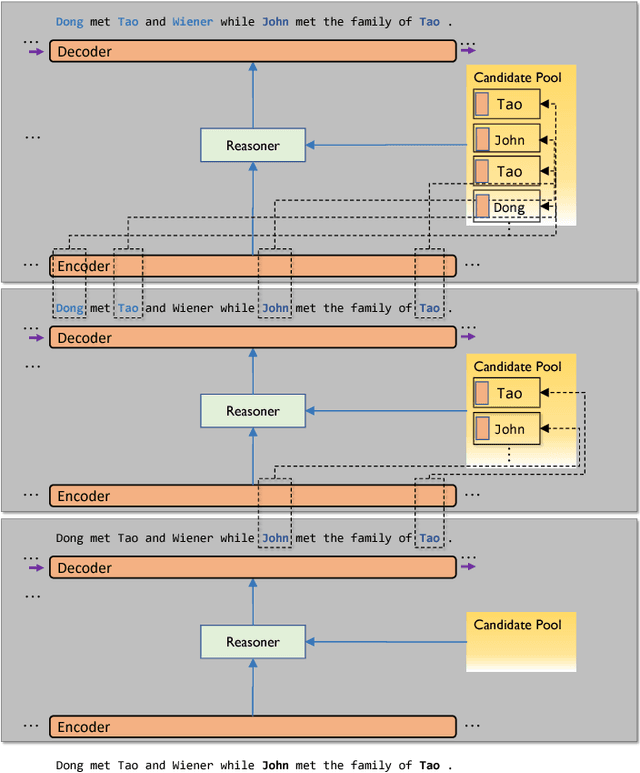
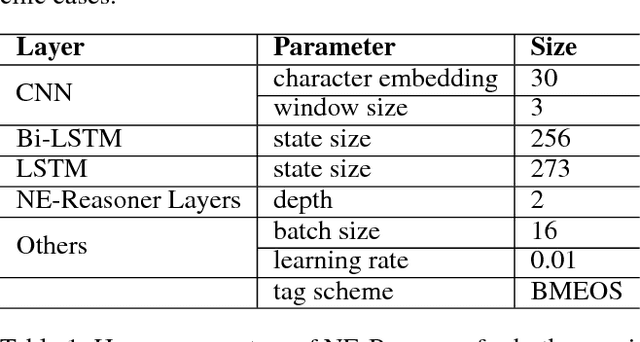
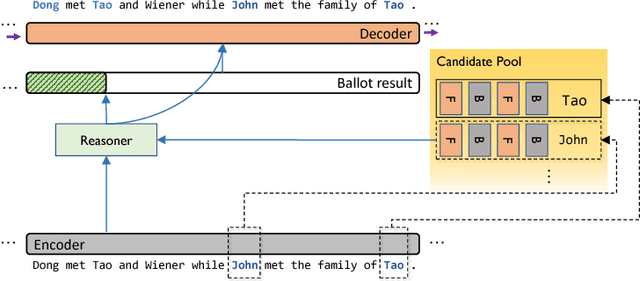
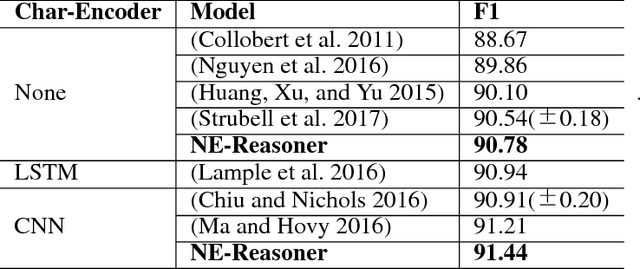
Abstract:We propose Neural Entity Reasoner (NE-Reasoner), a framework to introduce global consistency of recognized entities into Neural Reasoner over Named Entity Recognition (NER) task. Given an input sentence, the NE-Reasoner layer can infer over multiple entities to increase the global consistency of output labels, which then be transfered into entities for the input of next layer. NE-Reasoner inherits and develops some features from Neural Reasoner 1) a symbolic memory, allowing it to exchange entities between layers. 2) the specific interaction-pooling mechanism, allowing it to connect each local word to multiple global entities, and 3) the deep architecture, allowing it to bootstrap the recognized entity set from coarse to fine. Like human beings, NE-Reasoner is able to accommodate ambiguous words and Name Entities that rarely or never met before. Despite the symbolic information the model introduced, NE-Reasoner can still be trained effectively in an end-to-end manner via parameter sharing strategy. NE-Reasoner can outperform conventional NER models in most cases on both English and Chinese NER datasets. For example, it achieves state-of-art on CoNLL-2003 English NER dataset.
Object-oriented Neural Programming (OONP) for Document Understanding
Jul 25, 2018

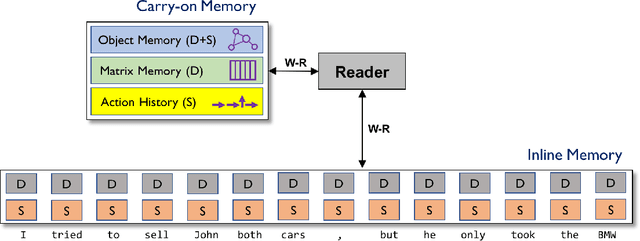

Abstract:We propose Object-oriented Neural Programming (OONP), a framework for semantically parsing documents in specific domains. Basically, OONP reads a document and parses it into a predesigned object-oriented data structure (referred to as ontology in this paper) that reflects the domain-specific semantics of the document. An OONP parser models semantic parsing as a decision process: a neural net-based Reader sequentially goes through the document, and during the process it builds and updates an intermediate ontology to summarize its partial understanding of the text it covers. OONP supports a rich family of operations (both symbolic and differentiable) for composing the ontology, and a big variety of forms (both symbolic and differentiable) for representing the state and the document. An OONP parser can be trained with supervision of different forms and strength, including supervised learning (SL) , reinforcement learning (RL) and hybrid of the two. Our experiments on both synthetic and real-world document parsing tasks have shown that OONP can learn to handle fairly complicated ontology with training data of modest sizes.
Event Identification as a Decision Process with Non-linear Representation of Text
Oct 03, 2017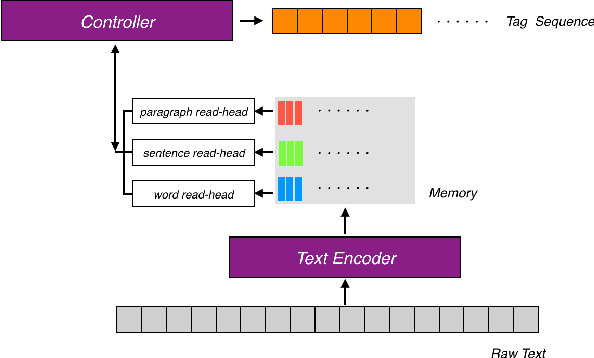

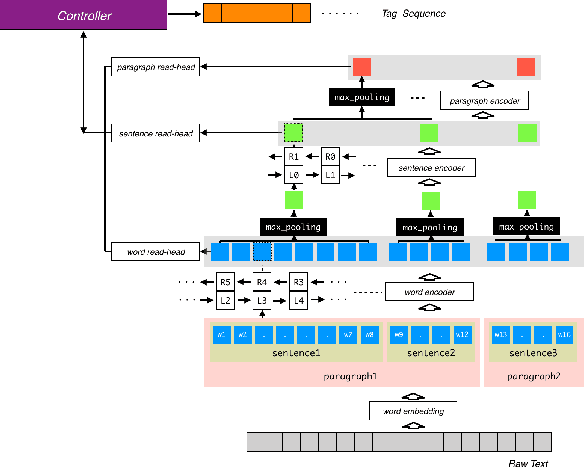

Abstract:We propose scale-free Identifier Network(sfIN), a novel model for event identification in documents. In general, sfIN first encodes a document into multi-scale memory stacks, then extracts special events via conducting multi-scale actions, which can be considered as a special type of sequence labelling. The design of large scale actions makes it more efficient processing a long document. The whole model is trained with both supervised learning and reinforcement learning.
 Add to Chrome
Add to Chrome Add to Firefox
Add to Firefox Add to Edge
Add to Edge